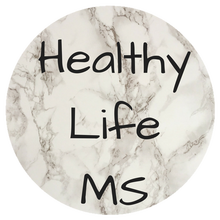- Developed by:
Professor Jelinek has devised this OMS MS recovery programme following his own MS diagnosis in 1999 with components which include:
- Diet
- Supplements
- Exercise
- Vitamin D
- Meditation
- Medication if necessary
Full details available in his book and website: overcomingms.org/recovery-program/
Premise of the diet:
OMS is similar to the SWALK diet in that it is a wholefood diet plus seafood, cutting out dairy and meat and reducing saturated fat intake; it is similarly based on possible implications of saturated fat on MS. The differentiation with the SWALK diet seems to be that OMS provided guidance on other lifestyle aspects considered to affect the disease. The diet is only one of the recommended aspects of the programme.
Allowing:
- Vegetables and fruits
- Grains (pasta, rice, wheat, oats, corn, barley etc)
- Nuts and seeds
- Beans, peas and other legumes
- Fish and seafood
- Dairy alternatives made from soy, rice, almonds, oats etc
- Egg white
Avoiding:
- Dairy (milk, cream, butter, ice cream, cheese, yogurt, whey powder)
- Baked foods, unless fat free (commercial baked goods, prepared mixes)
- Smacks (chips, corn chips, party foods)
- Fats (margarine, shortening, mayonnaise, lard, coconut oil, palm oil, unnamed vegetables oils which are normally palm oil)
- Meat (all land animals including cures, processed or canned meats)
- Fried ad deep-fried foods (except those fried without oil using water, wine or sauces)
- Fast food (burgers, fried chicken, fries etc)
- Egg yolks
Recommending:
- Omega 3 fatty acid supplements
- 20mls or equivalent in capsules of flaxseed or fish oil
Following with OMS diet is not likely to be considered bad for you as long as you include the missing nutrients.
Cautions:
- Ensure you are getting enough protein in the diet by eating plenty of fish, beans and pulses
- As with the SWALK diet OMS may be low in energy so may not be suitable if you have high energy needs or are already underweight.
- The diet may be low in calcium if few dairy products are consumed
- The diet may be low in iron If red meat is avoided
Sources:
Jelenik, G. Overcoming MS (available at: overcomingms.org/recovery-program/
MS Society (2016) Diet and Nutrition Booklet
MS Trust (2014) Diet Factsheet
Jelenik, G. Overcoming MS (available at: overcomingms.org/recovery-program/
MS Society (2016) Diet and Nutrition Booklet
MS Trust (2014) Diet Factsheet
